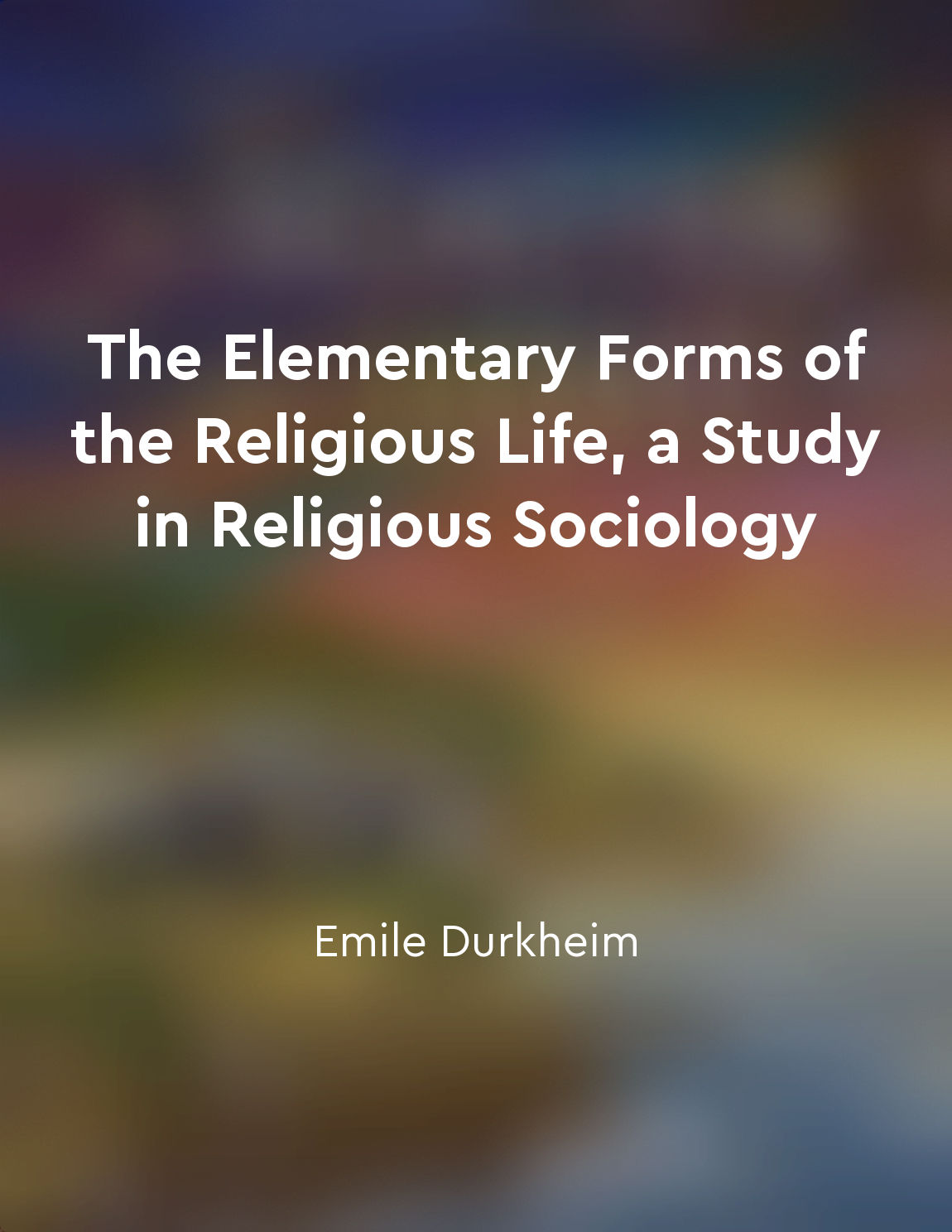Evolution of religious beliefs from "summary" of The Golden Bough by James George Frazer
The study of the evolution of religious beliefs reveals a fascinating journey of human thought and practice throughout history. As societies progress and change, so do their religious beliefs, adapting to new circumstances and experiences. This evolution can be seen in the development of various religious rituals, myths, and symbols that have transformed over time. One of the key aspects of the evolution of religious beliefs is the concept of animism, which is the belief in spiritual beings that inhabit the natural world. Animism is a primitive form of religion that is based on the idea that all things, both living and non-living, possess a spirit or soul. This belief in animism can be seen in the worship of trees, rocks, rivers, and other natural elements as sacred beings. As societies advanced, they began to develop more complex religious beliefs, moving away from animism towards the worship of gods and goddesses. These deities were often associated with specific aspects of nature or human life, such as fertility, war, or the harvest. The worship of these gods and goddesses involved elaborate rituals and ceremonies, designed to appease or honor them. The evolution of religious beliefs also includes the rise of monotheism, the belief in a single, all-powerful deity. Monotheistic religions such as Christianity, Islam, and Judaism have had a profound impact on human history, shaping the beliefs and practices of millions of people around the world. These religions emphasize the importance of moral behavior and obedience to the will of a divine being. Throughout history, religious beliefs have been influenced by cultural, social, and political factors, leading to the creation of diverse religious traditions and practices. The evolution of religious beliefs is an ongoing process, as societies continue to adapt to new ideas and experiences. By studying the evolution of religious beliefs, we can gain a deeper understanding of the human experience and the ways in which we seek meaning and purpose in the world.Similar Posts
Dangers of blind faith
Blind faith is a dangerous thing. When people believe without questioning, they become susceptible to manipulation and exploita...
Empathy is the key to understanding others
Empathy is crucial in our interactions with others. It allows us to truly understand their perspective, feelings, and experienc...
Atheists can uphold ethical principles
One of the most common misconceptions about atheism is that it is synonymous with immorality. Many people believe that without ...

Religious symbols evoke powerful emotions
Durkheim argues that religious symbols have a profound impact on individuals within a society. These symbols are not just mere ...
Continuity of ancient traditions
The continuity of ancient traditions is a fundamental concept that underlies the study of human culture and society. It speaks ...

The tradition of questioning and debate is essential in Hinduism
The idea that questioning and debate are integral to Hinduism is deeply rooted in the fabric of our faith. From the earliest sc...
